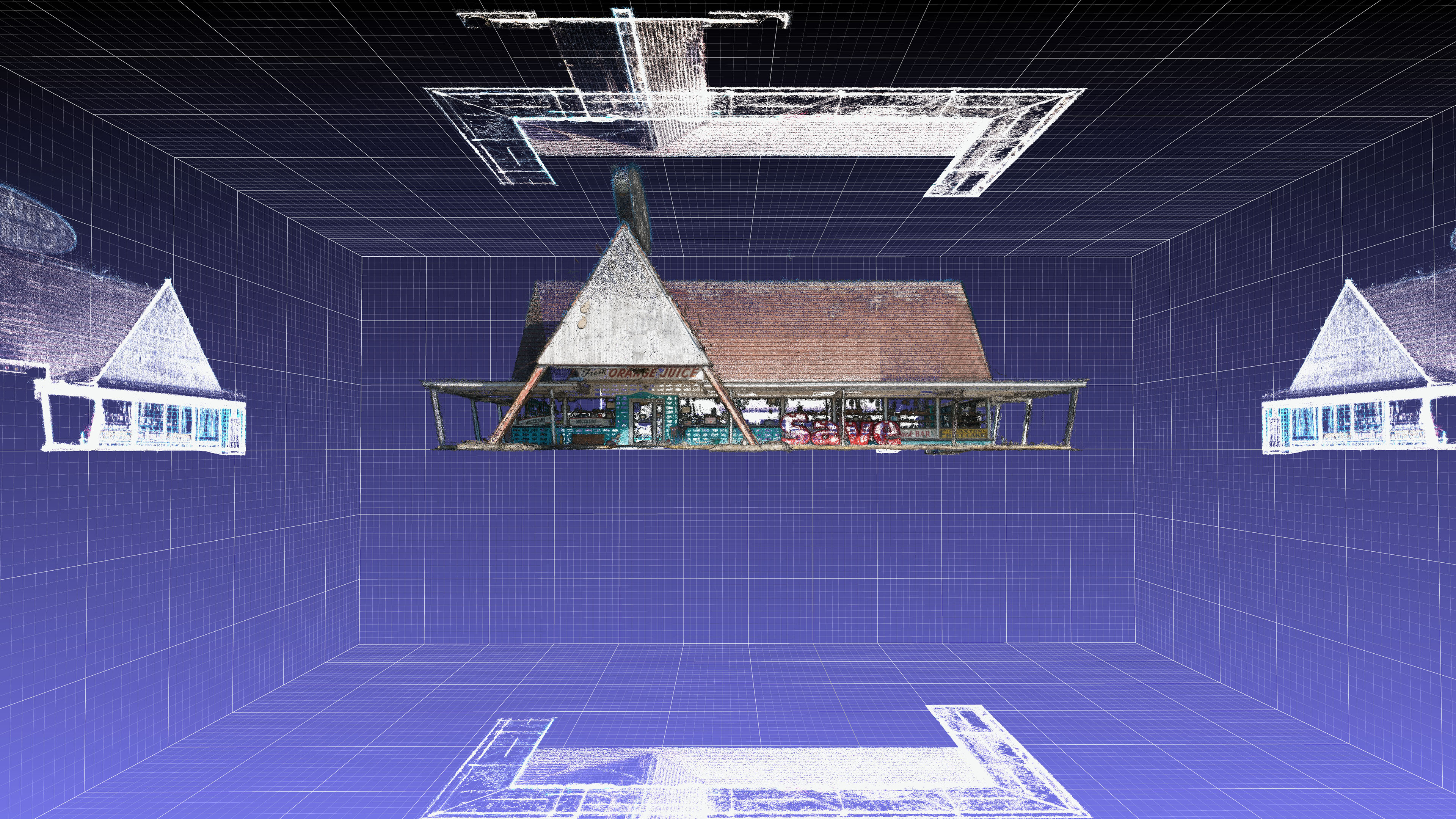
Experiments in ARTificial Intelligence
art with machines
Years taught: Fall 2021,2022,2023
[background: Uumwelt, 2018 by Pierre Huyghe - segment]
- UF Catalog
Learn about the history and theory of AI in computing from a scientific, mythological, and material viewpoint, and investigate this from a theoretical position that is deeply critical yet simultaneously analytical regarding its potential. Gain a literate understanding of AI and learn heuristically through the act of making. Materially engage AI as a medium to produce artworks using AI methodologies and tools.
- Course Description
In ART4659C Experiments in ARTificial Intelligence, we will learn about the history and theory of AI in computing from a scientific, mythological, and material viewpoint. We will investigate it from a “pharmakological” position that is deeply critical, yet simultaneously analytical with regard to its potential. Not only will we gain a literate understanding of AI, but we will learn “heuretically”: we will learn through the act of making. Students will materially engage AI as a medium for the production of art works. Experience with digital image practices, computer modeling and programming are recommended, but not required.
The class is a hands-on, art studio, experimental workshop. It is project-based and students will propose work that explores their own practice using artificial intelligence as a medium or source of inspiration. Sample project ideas include but are not limited to: simulations, networked experiences, generative audio, generative imagery (still and motion), info-viz, general research, etc.
As a Senior-level and Graduate-level course, you develop your own project ideas (with our help). Your primary task is to challenge your own abilities and push the boundaries of your current knowledge.
- Course Details
Credits: 3; Prereq: ART 2620C (Net Art) or with permission of faculty.
Jack Stenner, Ph.D Associate Professor, Art + Technology Office: FAC 304 Office Hours: Th 11:30am-12:30pm 352.213.0997 stenner@ufl.edu Undergraduate: ART 4659C Class 28567 Section C302 Graduate: ART 5930C Class 28575 Section ARTI Class: PHYSICAL - Fine Arts Bldg C Room 302 Time: T/Th 8:30AM - 11:30AM Website: http://jackstenner.com/teaching/ai Listserv: Class contact will be made UF email and via Discord (evite to be provided).
- LearningThings you might learn/explore:
- Experimental imagery production
- Experimental video
- Tactical media works
- Dynamic simulation via game engine
- WebGL and/or node.js network experience
- Generative experiences
- Participatory works that collect and manipulate data
- Bots that produce poetry or disinformation
- Surveillance, sousveillance, computer vision
- and more....
Tools you might use to enable the list above:- PyTorch, TensorFlow
- Game Engines: Unreal, Unity3d
- Programming: Python, Java, C#, etc.
- Video Streaming
- Form [static and dynamically driven]: Maya, Rhino, Blender
- Rapid Prototyping/manufacturing, generative models
- Microcontrollers and Sensors: NVIDIA Jetson Nano (hopefully), etc.
- Network/Database: Apache, PHP, MySQL, Node.js, etc.
Objectives
Over the course of the semester, the goal is to help you develop your art practice in the following ways:
1.
Context
Become aware of the history and material foundation of AI.
2.
Synthesis
Learn the appropriate integration of digital processes.
3.
Criticality
Engage meaningful discussion and develop criticality.
4.
Awareness
Gain an awareness of related work in the field.
5.
Communicate
Propose ideas in a way that clearly demonstrates intent.
6.
FUN
Have FUN!
- Attendance
Requirements for class attendance and make-up exams, assignments, and other work in this course are consistent with university policies that can be found at:
https://catalog.ufl.edu/ugrad/current/regulations/info/attendance.aspx. - Grades
Grades will be based 90% on projects, reviews, and class assignments. 10% will be based on class participation. See below for the breakdown. Participation means you are expected to constructively criticize your peers and participate in class discussions. Failure to do so will impact your participation grade.
Detailed, specific info on grades and grading can be found at:
https://catalog.ufl.edu/UGRD/academic-regulations/grades-grading-policies/Notwithstanding the description of grades above, generally, grades are conceived in this way:
A(Excellent) Student’s work is of exceptional quality and the solutions to problems show a depth of understanding of the program requirements. Project is fully developed and presented well both orally and graphically. Student has developed a strong and appropriate concept that clearly enhances the overall solution. The full potential of the problem has been realized and demonstrated.
B(Good) Student’s work shows above average understanding and clear potential. All program requirements are fulfilled and clearly and concisely presented.
C(Fair) Student’s work meets minimum objectives of course and solves major problem requirements. Work shows normal understanding and effort. Quality of project as well as the development of knowledge and skills is average.
D(Poor) Student’s work shows limited understanding and/or effort. Minimum problem requirements have not been met. Quality of project or performance as well as development of knowledge and skills is below average.
F(Failure) Student’s work is unresolved, incomplete and/or unclear. Minimum course objectives or project requirements are not met, and student’s work shows lack of understanding and/or effort. Quality of project or performance is not acceptable. Based on feedback and class interaction, this syllabus is subject to refinement and development throughout the semester. Policies and grading criteria are absolute and will not change. Any substantial changes will be discussed with the class prior to implementation.
Grading breakdown:
Assignments (5) = 50% Reflections (10) = 20% Final Project = 20% Participation = 10%
- Evaluation
Students are expected to provide feedback on the quality of instruction in this course by completing online evaluations at https://evaluations.ufl.edu. Evaluations are typically open during the last two or three weeks of the semester, but students will be given specific times when they are open. Summary results of these assessments are available to students at https://evaluations.ufl.edu/results/.
-
Materials/Fees
Required materials will depend on the proposed projects submitted by students. Students will design projects and set budgets based on the goals of the work. See the Schedule of Courses for any attendant fees related to this course.
-
Readings
Readings will consist of .pdfs and URLs available on the class website. While not required, I highly recommend Atlas of AI by Kate Crawford.
-
Policies
Be sure to read the University of Florida Policies regarding academic honesty, the honor code, accomodations for students with disabilities, wellness, computer use and acceptable use policy, disruptive behavior, health and safety, email and communications, and late work policy.
-
H.B. 7, 233
On July 1, 2021 faculty were provided guidance from United Faculty of Florida as to how to respond to Governor Ron DeSantis' "Viewpoint Discrimination" Bill, otherwise known as H.B. 233. Among other things, I will be following their recommendation to reserve the right to record classes I teach. If you have any questions about this, please feel free to ask and we can discuss it further. Similarly, in response to H.B. 7 "Stop Woke Act", no lesson is intended to espouse, promote, advance, inculcate, or compel a particular feeling, perception, viewpoint or belief.
Projects


